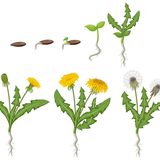The basics of breastfeeding
Breast milk is first and foremost the best food for the baby, which provides him with everything he needs and meets his nutritional needs during the period. Breast milk is loaded with antibodies that help the baby fight viruses and bacteria, which is critical in the early months of life.
In addition, breast milk abounds in nourishing nutrients and protective compounds that are essential for the development of the baby. That is why breast milk is known as the "gold standard" for feeding babies, and many experts from various global and local organizations promote breastfeeding among mothers. 1
Breast milk also contains easily digestible fats rich in essential unsaturated fatty acids, which are vital for the baby and the proper development of the nervous, brain and immune systems. With the exception of vitamin D, breast milk contains everything necessary for the proper development of the baby in the first 6 months. But if the overall diet of the mother does not provide enough nutrients, it can affect both the quality of breast milk and the health of the mother and baby. 2
One study showed that breast milk consisted of 87 percent water, 3.8 percent fat, 1.0 percent protein, and 7 percent carbohydrates, and provided 60 to 75 kcal/100 ml. 3 Compared to infant formula, the calorie content and composition of breast milk varies. Breast milk changes during each feeding and throughout the lactation period to meet the baby's needs, while formula is not.
Also no less important is the colostrum that the mother produces in the first days after birth. It is a thick and yellowish liquid with a high protein content, low in sugar and loaded with beneficial compounds. This is definitely an indispensable food that can not be replaced by an adapted formula. Colostrum is the ideal form of first milk for the baby and helps in the development of the immature digestive tract of the newborn. After the first few days, the breasts begin to produce larger amounts of milk as the baby's stomach grows.
Which foods are best during breastfeeding
Many mothers experience a strongly increased appetite not only during pregnancy, but also after during breastfeeding. There is a reason why hunger levels are highest during breastfeeding. The creation of breast milk exhausts the body and requires additional calorie intake as well as higher levels of specific nutrients. In fact, it has been estimated that energy needs during breastfeeding increase by about 500 calories per day. The need for specific nutrients, including protein, vitamin D, vitamin A, vitamin E, vitamin C, B12, selenium and zinc also increases. 4
That is why the intake of a variety of nutrient-rich foods is fundamental to the health of both mother and baby. It is important that these macro- and micronutrients are present in the mother's diet daily and as a prevention of deficiencies. Next is a list of nutritious and delicious foods that find a place in the diet of nursing mothers:
- Fish and seafood: salmon, seaweed, mussels, sardines
- Meat and poultry: chicken, veal, lamb, pork, liver
- Fruits and vegetables: berries, tomatoes, peppers, cabbage, kale, garlic, broccoli
- Nuts and seeds: almonds, walnuts, chia seeds, hemp seeds, linseed
- Healthy fats: avocado, olive oil, coconut, eggs, whole milk yogurt
- Fiber-rich starchy foods: potatoes, pumpkin, sweet potatoes, beans, lentils, oatmeal, quinoa, buckwheat
- Other foods: tofu, dark chocolate, kimchi, sauerkraut
Of course, this list is not exhaustive and there are more foods in each category that can be consumed. Also, experts recommend that the intake of processed foods, spicy foods, allergenic foods and sweet breakfast cereals be as limited as possible.
Adaptation of the diet during breastfeeding
During breastfeeding, the mother should pay special attention to specific vitamins and minerals. Nutrients in breast milk can be categorized into two groups depending on the extent to which they are secreted into the milk and according to this, the regimen can be adapted.
Group 1 nutrients and their food sources are:
- Vitamin B1 (thiamine): fish, pork, seeds, nuts, beans
- Vitamin B2 (riboflavin): cheese, almonds, nuts, red meat, oily fish, eggs
- Vitamin B6: chickpeas, nuts, fish, poultry, potatoes, bananas, dried fruits
- Vitamin B12: mussels, liver, yogurt, oily fish, nutritional yeast, eggs, crabs, shrimp
- Choline: eggs, beef liver, chicken liver, fish, peanuts
- Vitamin A: sweet potatoes, carrots, dark leafy vegetables, organic meat, eggs
- Vitamin D: cod liver oil, oily fish, some mushrooms
- Selenium: Brazil nuts, seafood, turkey, whole wheat, seeds
- Iodine: dried algae, cod, milk, iodized salt
Group 2 nutrients and their best food sources are:
- Folate: beans, lentils, leafy vegetables, asparagus, avocado
- Calcium: cow's milk, yogurt, cheese, leafy vegetables, legumes
- Iron: red meat, pork, poultry, seafood, beans, green vegetables, dried fruits
- Honey: crustaceans, whole grains, nuts, beans, organ meat, potatoes
- Zinc: oysters, red meat, poultry, beans, nuts, dairy products
If group 1 nutrients are depleted, they will not be secreted into breast milk as easily. So the addition of nutrients from this group can increase their concentration in breast milk a little and, as a result, improve the health of the baby.
On the other hand, the concentration of group 2 nutrients in breast milk does not depend on how much the mother takes, so adding them will not increase the concentration of nutrients in breast milk. Even so, they can still improve maternal health by replenishing nutrient stores.
Intake of certain dietary supplements

Although a healthy diet is the most important factor when it comes to nutrition while breastfeeding, some supplements can help replenish vitamin and mineral stores.
There are a number of reasons why new mothers may be low in certain nutrients, including a lack of the right foods on the menu and increased energy needs from breast milk production, along with caring for the baby. Taking supplements should be done after consulting a doctor, as some supplements contain herbs and other ingredients that are not safe for nursing mothers.
For example, multivitamins, vitamin B12, omega-3 fatty acids, and vitamin D are suitable. Multivitamins are an easy and convenient solution for providing a variety of essential vitamins, and vitamin B12 may be especially needed by mothers with a vegetarian or vegan diet. Omega-3 fats play an essential role in both maternal and fetal health, including building the baby's nervous system, skin, and eyes. 5 Last but not least is the sunshine vitamin, which is present in very small amounts in breast milk and therefore should be provided additionally. 6 Babies need vitamin D to absorb calcium and phosphorus. Too little vitamin D can cause rickets, softening and weakening of bones, and its deficiency in the mother can contribute to postpartum depression. 7
Don't forget about good hydration.
Breastfeeding stimulates thirst and therefore it is important for the mother to drink enough water throughout the day to avoid dehydration.
It's important to note that hydration needs will vary depending on factors such as activity levels, sleep, and dietary intake. There is no universal rule when it comes to how much fluid should be drunk during breastfeeding.
As a general rule, experts say to always drink water when we are thirsty and until we quench our thirst. But if the mother feels too tired, tired, or breast milk production decreases, she may need to drink more water. This is one of the things for which there are no restrictions and it is always useful to consume.








